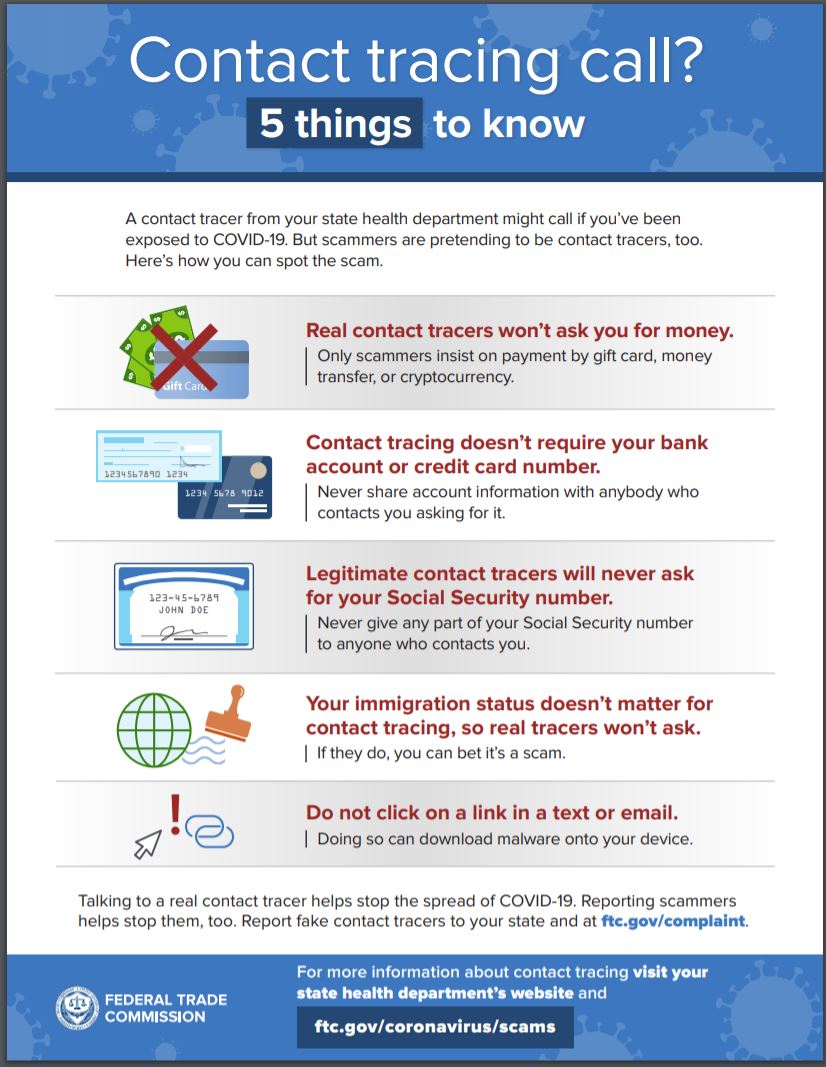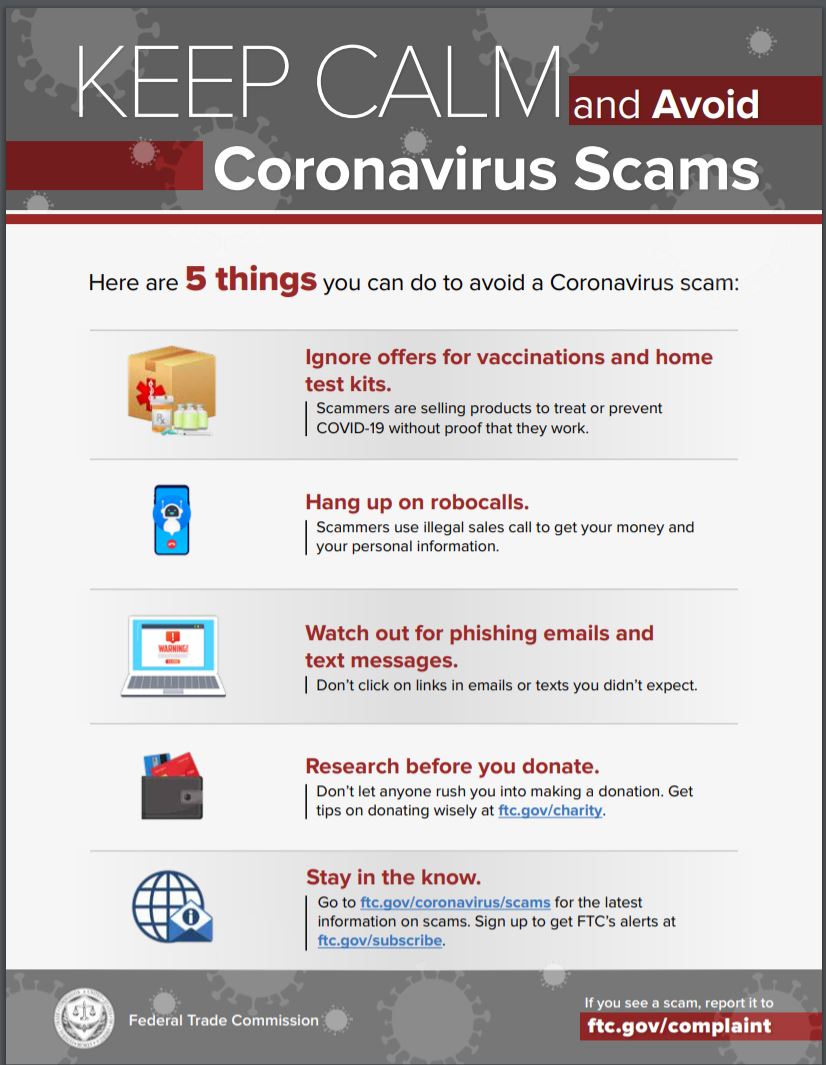In an effort to limit the spread of COVID-19 as we reengage with individuals outside of our homes, state health departments have enlisted the aid of contact tracers to track anyone who may have been exposed to COVID-19. Unfortunately, some scammers pretend to be contact tracers in an effort to take advantage of the novelty of the program and gain access to secure information. Thankfully, the Federal Trade Commission (FTC) has released resources to help individuals tell the difference between a real contract tracer and a scammer.
Contact tracers may attempt to notify you if you’ve been exposed to COVID-19. According to “Help COVID-19 Contact Tracers, Not Scammers” by Shameka L. Walker, you can recognize legitimate contact tracers from the state health department based on the type of information they ask for. When contact tracers reach out, they may call, email, text, or visit your home to collect information.
A legitimate contact tracer will only ask you for basic information:
• Your name and address
• Health information
• The names of places and people you have visited
An individual posing as a contact tracer will ask for:
• Money (gift card, money transfer, or cryptocurrency)
• Bank account numbers and/or credit card numbers
• Your Social Security number
• Your immigration status
Pay extra attention to emails and texts requesting you to click on a link. Clicking the link could download malware onto your device, so be certain you can verify the source of the message. If in doubt, don’t click. Delete the message instead.
If you are unsure about the validity of a contact tracer, hang up, close the door, or don’t respond to, click on, or download anything that may be in an email or text. Then report the interaction to your state and notify the Federal Trade Commission.
The following PDFs from the FTC provide a reference on how to protect yourself from those attempting to take advantage of people during the current pandemic.
Scammers are using this time to ramp up their efforts. Stop and think before you react. If you’d like more information, contact our fraud specialists, Edward Schmitz and Betsy Rice.
Source: Federal Trade Commission, Help COVID-19 Contact Tracers, Not Scammers, Shameka L. Walker, June 25, 2020. https://www.consumer.ftc.gov/blog/2020/06/help-covid-19-contact-tracers-not-scammers
Contact Us
Disclaimer of Liability
Our firm provides the information in this article for general guidance only, and does not constitute the provision of legal advice, tax advice, accounting services, investment advice or professional consulting of any kind. The information provided herein should not be used as a substitute for consultation with professional tax, accounting, legal or other competent advisors. Before making any decision or taking any action, you should consult a professional advisor who has been provided with all pertinent facts relevant to your particular situation. Tax articles in this blog are not intended to be used, and cannot be used by any taxpayer, for the purpose of avoiding accuracy-related penalties that may be imposed on the taxpayer. The information is provided “as is,” with no assurance or guarantee of completeness, accuracy or timeliness of the information, and without warranty of any kind, express or implied, including but not limited to warranties of performance, merchantability and fitness for a particular purpose.
Blog
Nonprofit Insights



